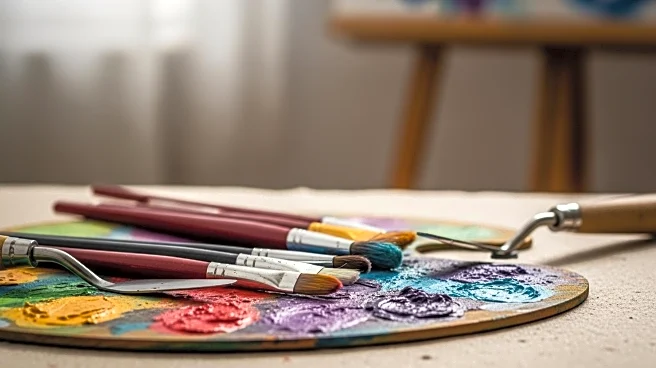What is the story about?
What's Happening?
Director Julian Schnabel has ignited controversy at the Venice Film Festival with his remarks dismissing calls to boycott artists. During a press conference on September 3, 2025, Schnabel emphasized the importance of focusing on the merits of actors and the film itself, rather than political issues. His comments came in response to an open letter signed by hundreds of industry figures urging the festival to disinvite artists who support Israel. The festival's decision not to disinvite these artists, despite their absence, has further fueled the debate. Schnabel's status as a celebrated filmmaker has amplified the impact of his statement, turning it into a viral talking point about artistic merit versus political accountability.
Why It's Important?
The controversy surrounding Schnabel's remarks highlights the ongoing tension between art and politics at major cultural events. The Venice Film Festival, a high-profile global stage, is now at the center of a debate over whether festivals should remain neutral or take a stand on political issues. This situation underscores the broader implications for the film industry, where visibility and endorsement are increasingly intertwined. The polarized reactions from artists and commentators reflect a divide between those advocating for artistic freedom and those calling for collective accountability. This debate could influence future festival programming and the criteria for star invitations, potentially reshaping how cultural events are perceived and managed.
What's Next?
The immediate consequence of Schnabel's remarks is reputational turbulence for festivals and potential PR challenges for invited talent. Festival organizers may need to tighten messaging and consider preemptive guidelines on political protests and guest appearances. As red carpets become political battlegrounds, festivals might develop clearer policies to manage controversies and protect their reputations. For artists and audiences, the challenge will be navigating the intersection of art and activism, with future premieres carrying inherent political risks. The industry will need to decide whether to separate art from endorsement or embrace controversy as a means of generating attention.
Beyond the Headlines
Schnabel's comments at the Venice Film Festival reflect a broader cultural shift where premieres are no longer neutral events but public stages for political discourse. This development raises ethical questions about the role of festivals in promoting or censoring political views. As festivals grapple with these challenges, they may face pressure to establish clearer rules that delineate art from political endorsement. The evolving landscape of cultural events could lead to long-term changes in how art is presented and consumed, with implications for festival directors, studios, and talent.
















